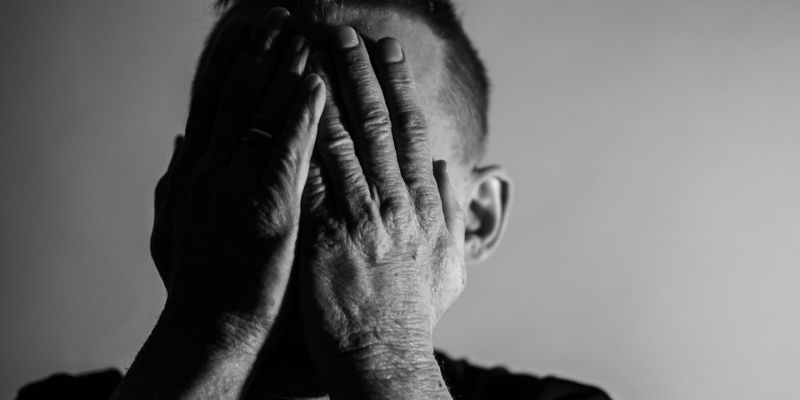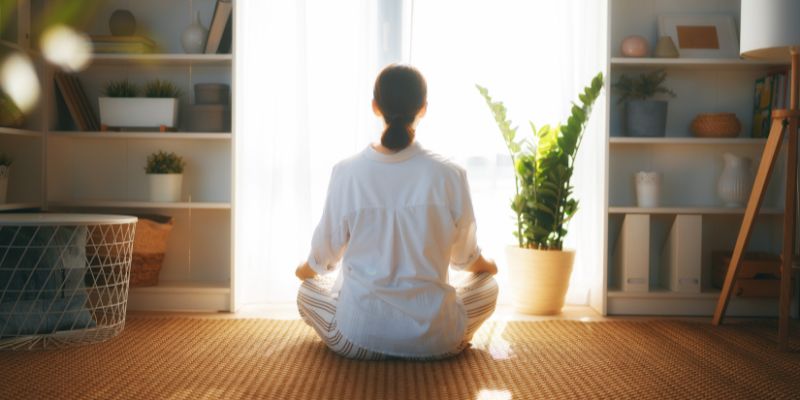Sleep is one of the important needs of our body. For a healthy life, you must sleep for 7-9 hours, depending on your needs, so you can feel refreshed and energized. However, its one thing thats easier said than done, especially for people who are dealing with chronic pain conditions. In this article, were going to discuss how pain affects your sleep, what type of pain affects your sleep, the importance of sleep if you have chronic pain, and some tips to help you overcome chronic pain and sleep well at night. Lets begin.
How Does Pain Impact Sleep?
Did you know that of Americans who suffer from chronic pain, 67-88% of them say that their pain disturbs their sleep? They either report having trouble falling asleep or constantly waking up because of the pain. Another thing reported by patients with chronic pain is that they wake up sooner than they want to and then feel groggy, lazy, and unrested in the morning due to the lack of sleep. And what this does is make your pain worse because you arent rested properly. Its a constant battle.
Does Chronic Pain Cause Insomnia?

Another thing that chronic pain can indirectly cause is temporary insomnia. Since youre unable to sleep at night due to pain, your brain might get used to not sleeping at night, and hence, you might not be able to sleep at all! This can increase your risks of obesity, depression, and even a stroke. So, its important to address your chronic pain and sleep right before its too late.
What Chronic Pain Conditions Can Affect Sleep?
Many chronic pain conditions can affect your sleeping routine. Heres a list of the most common ones.
Arthritis
Arthritis is one of the most common types of chronic pain conditions that people face. Now, there are over 100 types of arthritis, but the most common one is osteoarthritis (OA). Thats when the joints around your hands, feet, hips, and knees feel sore, weak, and hurt when you move them. Your joints might even make squeaky sounds. If your arthritis is bad at night and you cant fall asleep due to it, its important to consult a doctor as its a serious problem.
Lower Back Pain
Temporary back pain is one thing. Its when you lift something heavy, and your back gets sore for a few days or a week, or if you get into an accident and your back gets hurt for some time, or maybe its the bad posture thats causing some trouble in your lower back. All of these are not necessarily serious unless theyre causing you pain for long. However, if any of these lead to a herniated disk or a spinal fracture, then it becomes a lot more serious and may start affecting you at nighttime and causing you trouble falling asleep. In these cases, its important to consult a doctor so they can guide you accordingly.
Migraine
Now, dont mistake migraines for the usual headaches. Migraines are like an attack on your head, which causes serious throbbing and pulsing-like pain in the area that is affected. It could be the front of your head, the back, the sides, or literally any random specific area. Sleeping with migraines is very difficult unless treated properly and waiting it out.
If you have one of these conditions, then keep reading, as we have some tips next:
The Importance Of Sleep If You Have Chronic Pain
If youre experiencing one of these conditions and youre not getting enough sleep, you risk making your conditions worse. If you dont get enough sleep for 7-9 hours, your body will not feel rested, and your body might not recover from your daily work activities and the daily pain. A good sleep routine will help you reduce your pain, promote better recovery, and overall minimize the symptoms that youd be experiencing otherwise.
3 Tips To Help You Sleep Well If You Have Chronic Pain
If your pain is just mild and annoying rather than serious, then you can try incorporating these tips for better sleep at night. However, consult a doctor if your condition is serious.
Avoid dinner and snacks at bedtime
This is the most important piece of advice. Eating and drinking close to your bedtime can worsen your chronic pain. The ideal time to stop eating is at least 2 hours before your bedtime. This gives your digestive system time to digest the food and not while youre trying to sleep.
No screens at bedtime
One of the biggest culprits when it comes to insomnia and not being able to sleep, whether you have a chronic condition or not, is using screens at bedtime. The blue light that these screens emit signals the brain to wake up instead of putting it to sleep. It might be the reason youre having trouble falling asleep. Ideally, it would be best if you were not using any screens at least one hour before bed. Perhaps, read a book, solve a Rubiks cube, do some puzzles, and other such activities to help calm down.
Fixed bedtime and waking-up time

After implementing the above tips, what you would benefit the most from is keeping it consistent. Make sure that youre going to bed at the same time every day and waking up every day at the same time as well. This will help your brain realize that its time to sleep or its time to wake up if you keep a schedule for a consistent amount of time.
Conclusion
Chronic pain, if serious enough, can make your sleeping routine a mess. However, if you implement healthier habits in your life and develop a rock-solid sleeping routine, then you can take charge of your body and minimize the symptoms of your chronic pain. In this article, we looked at three common chronic pain conditions and how they can affect your sleep. We also discussed five practical tips that can help you get your sleep back. These three tips are practical, and adding them to your daily routine will help you manage your chronic pain and sleep for a full nights rest.







